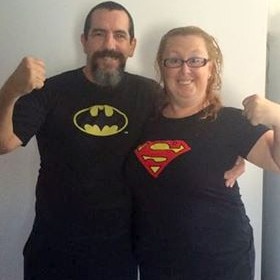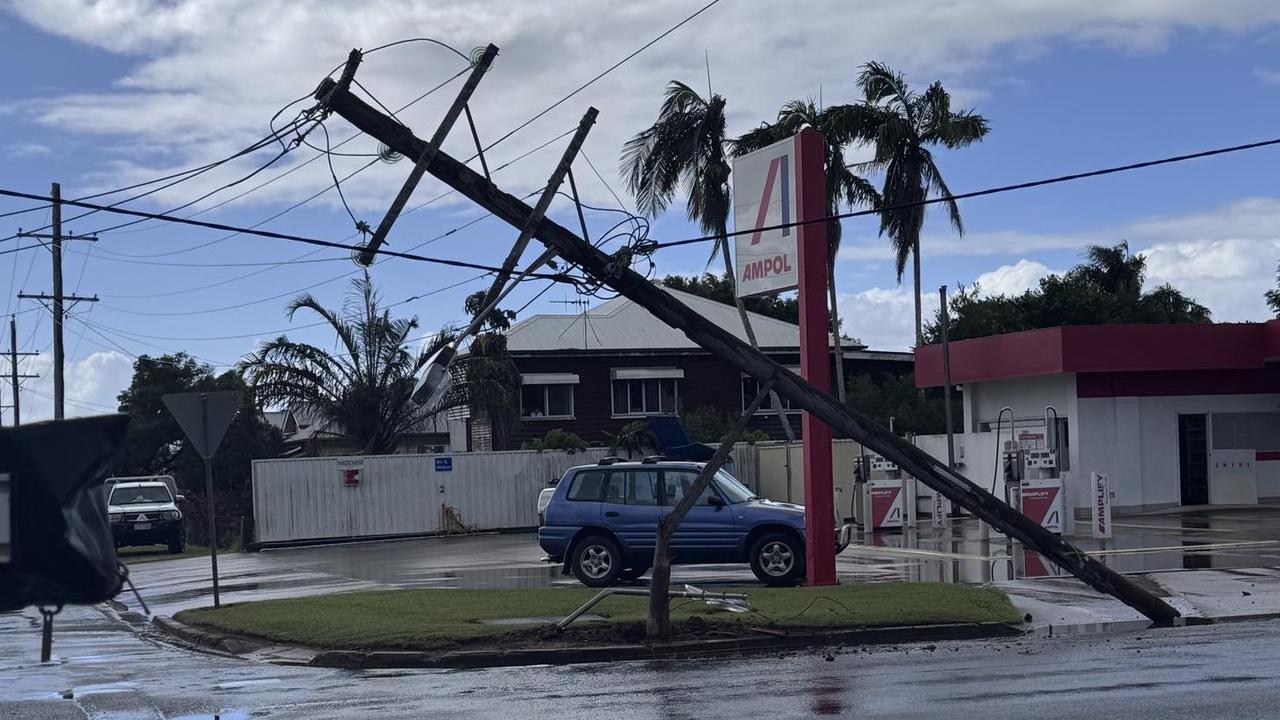QLD magistrate on ‘continuing impact’ after domestic violence murder
A Queensland magistrate has revealed how police turned Tara Brown away days before she was murdered by her ex-boyfriend. He says he is witnessing similar “slippages” in recent high profile domestic violence cases.

Police & Courts
Don't miss out on the headlines from Police & Courts. Followed categories will be added to My News.
A magistrate who released a man who went on to murder his estranged wife has spoken of the “significant and continuing impact” that “mistake” has had on him, as he fears a waning vigilance in the community will cost more lives.
Magistrate Colin Strofield, who was instrumental in setting up Southport’s specialist domestic violence court, said he couldn’t help but be shaped by David Bradford’s January 2017 stabbing murder-suicide of ex-partner Teresa Bradford while their four children were at home.
The case, which caused public uproar because Bradford had been bailed on charges relating to an earlier attack on Teresa, led to a change in bail laws that reversed the onus of proof for alleged domestic violence offenders.
Mr Strofield, who spoke at a White Ribbon event on coercive control last night, said “education is the answer” in addressing domestic violence, but that there should also be accountability and criticism when things went wrong.
“I am someone who has made that mistake. I let Bradford out,” he said ahead of the event. “…Teresa Bradford, she was murdered by her husband after I let him out.”

Mr Strofield said he felt deep distress for the children.
“They’d lost their mother and their father because of what I had done,” he said.
“But, on reflection, what I had done at the time was how the law was to be interpreted and applied. The law then got changed in amendments to the Bail Act.
“But I’m human, I’m a father, I’m married, it has a significant and continuing effect on what you do, particularly where the role of the court is to provide, in part, a protection and that person lost that barrier.”
Mr Strofield said the case brought a personal edge to his warnings for all to be vigilant and he had noticed a “slippage” in recent high-profile cases.
He said continuing education was key so women such as Tara Brown, who he granted a DVO to before she was run down by her ex-partner and former Bandido Lionel Patea in 2015, weren’t failed.
“Police had turned her away, told her there wasn’t enough evidence for them to do anything,” he said.
“She turned up before me that very same afternoon and I couldn’t believe she had been to the police station and been turned away on what she told me. I thought that I’d not see that sort of scenario again but unfortunately in recent times there’s been some slippage within the police service.

“I think it’s an individual thing rather than a collective issue for the police service and the commissioner.
“I think the commissioner is dedicated toward trying to educate … but as you know, you can take many horses to the waterhole but they’re only going to drink, those who want to drink.”
“…I’d like to think that Tara Brown wouldn’t happen again, I’d like to think that, but that’s the slippage part that I worry about.”
Mr Strofield said accountability and criticism was necessary, from senior officers, managers at the Office of the Director of Public Prosecution, and in the courts via the appeals process.
“We’ve got to, from a community perspective, raise the serious consequences of slipping,” he said.
“People die.
“People not doing their job, people not being vigilant, the community bystander not intervening. I’m not talking about standing in between two warring parties, I’m talking about not ringing the police, not talking to someone about whether they’re OK.”
Mr Strofield said he felt the system of judicial accountability would be improved and made more consistent if there was one specific district court judge who dealt with domestic violence, or coercive control-related appeals.
But he said there had been significant improvements, particularly in regards to the prosecution of strangulation cases.

Where sentencing submissions were often weak after the offence was first introduced, sentences were now more robust thanks to improved prosecution and submission work, he said.
Commenting on the focus of the White Ribbon event, Mr Strofield said he wanted more assistance for migrant women to come to court and better integration between social workers and legal services.
He said he still found it “hard to come to grips with” cases that came before him now in which victims said they hadn’t realised earlier that they could apply for a DVO based on their abuse, including financial and sexual abuse, despite public awareness campaigns.
“Sadly some of the lives that have been lost in the last few years might have been saved if there was the offence of coercive control because there wasn’t the realisation that they were being controlled coercively by their partners and people around them didn’t understand it either and didn’t take any steps … and that’s really sad,” he said.
Mr Strofield said his hope was that “lives are saved” by the McMurdo review of the criminal justice system, which is also considering coercive control laws.
“Not every domestic violence application brings about a high potential for a death, but some do, and it’s those ones that I hope will be addressed by the government, by the courts, by the community,” he said.
Meanwhile, South’s Community Hub managing director Seblework Tadesse, who works exclusively with culturally and linguistically diverse communities and also spoke at the event, said there needed to be an “equal application” of potential coercive control laws.
Ms Tadesse said authorities would need to be educated on the “layers” of control specific to migrant communities, for example, where a woman has poor English, or no citizen rights.
And police and others should be educated so their own biases are not in play when assessing cases so that people from migrant communities were not “profiled”, but were treated the same as any other.
Ms Tadesse said coercive control laws, alongside education, should guide people about unacceptable behaviour, help perpetrators change once they realise their behaviour was not acceptable in Australia, and “contain” those who won’t.
“If they need to be in prison, they need to be in prison,” she said.
Womensline 1800 811 811
Mensline 1800 600 636




